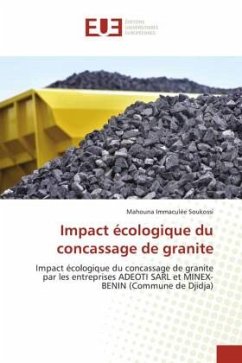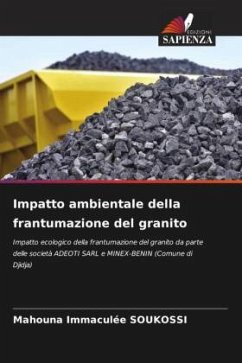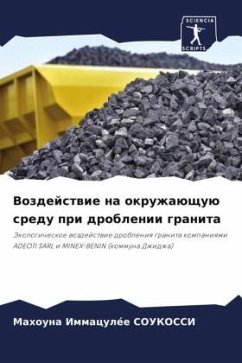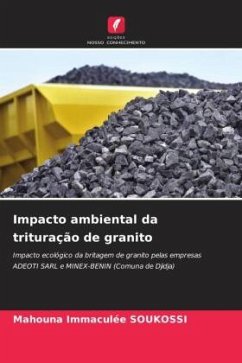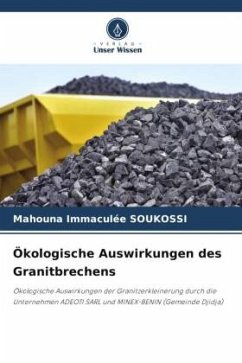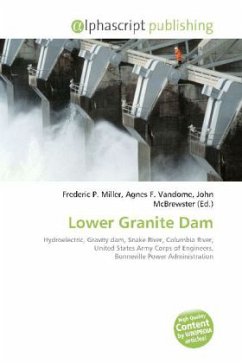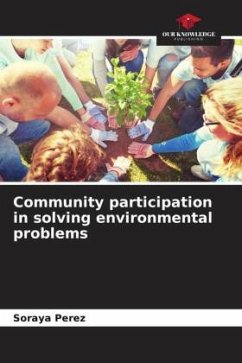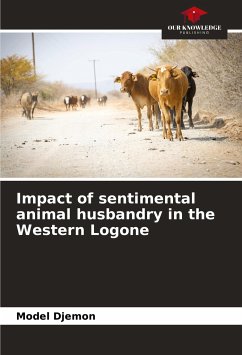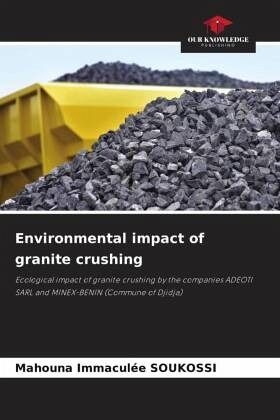
Environmental impact of granite crushing
Ecological impact of granite crushing by the companies ADEOTI SARL and MINEX-BENIN (Commune of Djidja)
Versandkostenfrei!
Versandfertig in 6-10 Tagen
29,99 €
inkl. MwSt.

PAYBACK Punkte
15 °P sammeln!
The exploitation of granite outcrops in Djidja has consequences on different ecosystems. This study aims to analyze the ecological impact of granite crushing by the companies ADEOTI and MINEX in Djidja. The methods used for this study include documentary research and field surveys supplemented by life cycle analyses (LCA) and the Value At Risk (VAR) method. However, the EBA framework method was used to assess the significance of environmental impacts. Analysis of the results by the SWOT model identified the ecological impacts of granite crushing. Granite crushing is done by blasting the deposi...
The exploitation of granite outcrops in Djidja has consequences on different ecosystems. This study aims to analyze the ecological impact of granite crushing by the companies ADEOTI and MINEX in Djidja. The methods used for this study include documentary research and field surveys supplemented by life cycle analyses (LCA) and the Value At Risk (VAR) method. However, the EBA framework method was used to assess the significance of environmental impacts. Analysis of the results by the SWOT model identified the ecological impacts of granite crushing. Granite crushing is done by blasting the deposit. Thus, by a mode of exploitation in situ, 1,296,000 tons of crushed material were obtained from 2015 to 2017 by ADEOTI Sarl. Despite its importance, it has generated many environmental, social, cultural and economic consequences for Setto and Dan. But the economic impacts are more positive than negative. It is therefore urgent to improve the performance of the dust suction system and to improve the techniques for cutting large blocks of granite.



